Opinion
A not entirely united government opts to be hard line
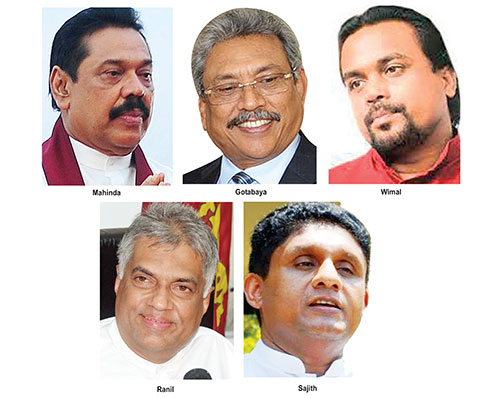
By Harim Peiris
It is quite a feat for a powerful government to insult its own Prime Minster and party leader, but that is precisely what the SLPP succeeded in doing last week, when a carefully orchestrated measure to ease up the pressure on the Government through bringing Sri Lanka in line with the rest of the world on Covid-19 burials, went awry. The Prime Minister’s assurance to Parliament, to allow the burial of the Covid-19 dead, was welcomed in a tweet by the soon to visit, Prime Minister Imran Khan of Pakistan. However, this was not implemented and instead was contradicted by junior state ministers of the Government. Since the forced cremation of the Covid-19 dead, against the wishes and religious beliefs of the bereaved families, is a uniquely Sri Lankan practice, in non-conformity with World Health Organization (WHO) guidelines, the issue is being closely watched and monitored not just locally but also globally. Accordingly, the Prime Minister’s assurance was widely welcomed. But clearly, he could not carry the day. It certainly seems the Prime Minister is not totally in charge of the government; shades of the previous Ranil Wickremesinghe premiership.
However, in the context of Sri Lanka’s system of government, this is only to be expected because especially post the 20th Amendment to our Constitution, the governing authority has been totally centralized in the hands of the executive President. Accordingly, one might reasonably expect that the president’s slightest wish is government writ. Therefore, it was quite surprising to note, a few weeks ago, when the nearly half a billion-dollar, foreign investment by India’s Adani Group in the Eastern Container Terminal (ECT) of the Colombo Port was to go ahead, this in a country that is starved of foreign exchange, that the President was seemingly very much on board. The President, quite correctly observed, at various fora, that international obligations cannot be unilaterally abrogated and more importantly that his government had negotiated terms where the Sri Lankan Government through the Sri Lanka Ports Authority would retain a majority stake and accordingly what was occurring was an investment into a minority stake in the ECT. This in the context of other such foreign investments with majority stakes, namely the Chinese Government’s CICT and the SAGT. However, quite surprisingly the President’s wishes to bring in the Indian private sector foreign investment did not quite carry the day inside the Government.
To cap quite a tumultuous first quarter for the Government, Minister Wimal Weerawansa, a leader of a minor political appendage of the ruling alliance, namely the National Freedom Front (NFF), stirred up a hornet’s nest in political circles, when he called for President Gotabaya Rajapaksa to be given the leadership of the ruling party, rather than its current incumbent, Prime Minister Mahinda Rajapaksa. The public call by Minister Weerawansa was met with the immediate demand by the ruling SLPP’s General Secretary, that the Minister both withdraw his statement and apologize for the same. Neither has happened and to the contrary the Minister has reiterated his stand. The call for a leadership change and that too between the president and the prime minister, was quite surprising because there was no reason for Minister Weerawansa to either be so public about a possible leadership role change in the Government or to be out of place by commenting on the affairs of a party he does not belong to. Leading as he does, his breakaway wing of the JVP, styled the National Freedom Front (NFF), a party which has the distinction of never yet having ever contested an election on its own but always in alliance with the Rajapaksa political party, first the UPFA and now its successor the SLPP.
A Government opting to be hardline
Next week the United Nations Human Rights Council (UNHRC), based in Geneva, will hold its 46th session, mostly in a virtual or online format and a country specific resolution on Sri Lanka, taking the government to task on our deteriorating human rights situation, will most likely pass. The Government is losing friends like India and alienating allies, like the 57 member nation, Organization of Islamic Cooperation (OIC). As political analysts have pointed out, the report by Human Rights High Commissioner and former two-term President of Chile, Michelle Bachelet focuses more on the new hardline policy being adopted since the election of November 2019. Policies, pronouncements and practices, which seemingly indicate a complete unwillingness to accommodate plurality, recognize diversity and defend democratic gains. The High Commissioner reports worrying signs of a government becoming increasingly authoritarian and militarized. The UNHRC report on Sri Lanka, namely A/HRC/46/20 in section 19, page 7 states “(i) militarization of civilian government functions, (ii) reversal of constitutional safeguards, (iii) political obstruction of accountability for crimes and human rights violations, (iv) majoritarian and exclusionary rhetoric (v) surveillance and obstruction of civil society and shrinking democratic space and (vi) new and exacerbated human rights concerns”. As if in a great hurry to confirm the above contentions by its actions, the Government having earlier rejected the report in toto, the Minister of Public Security withdrew the Special Task Force (STF) guard provided to TNA spokesman and leader in waiting, MA Sumanthiran for his participation and support to a massive anti-government march styled (P2P), from Pottuvil in the Eastern Province to Polligandy in the Northern Province, a not too subtle reference to the “responsibility to protect (R2P), the global political commitment adopted by the UN General Assembly in 2005 to prevent or hold accountable for war crimes, prevent genocide, ethnic cleaning and crimes against humanity. The rationale given by the Minister was that MP Sumanthiran, a President’s Counsel, had violated court orders, which he denies doing. When the matter was raised by the Leader of the Opposition in Parliament, many speakers pointed out that alleged violations of court orders should be met with prosecutions in court and not the withdrawal of security. Now we await the Hon. Speaker’s ruling whether it is the threat assessment against the MP, which the Minister himself readily conceded or political servility to the wishes of the government, which determines state security for minority and opposition MPs. The world meantime from Geneva is watching.
As the government domestically disregards plurality, tolerance of democratic dissent and accommodation of diversity and isolates itself internationally, with severe repercussions for our export driven, tourism, foreign investment and worker remittance dependent, globally integrated economy, the possibility of seeing a course correction by the SLPP’s Rajapakse Administration, is rather remote. This does however position Opposition Leader, Sajith Premadasa and his SJB, as the sole alternative to the government’s ideology, of being the sole representatives of the Sinhala people.
(The writer served as Advisor to the Minister of Foreign Affairs from 2016 to 2017)
Opinion
Is AKD following LKY?
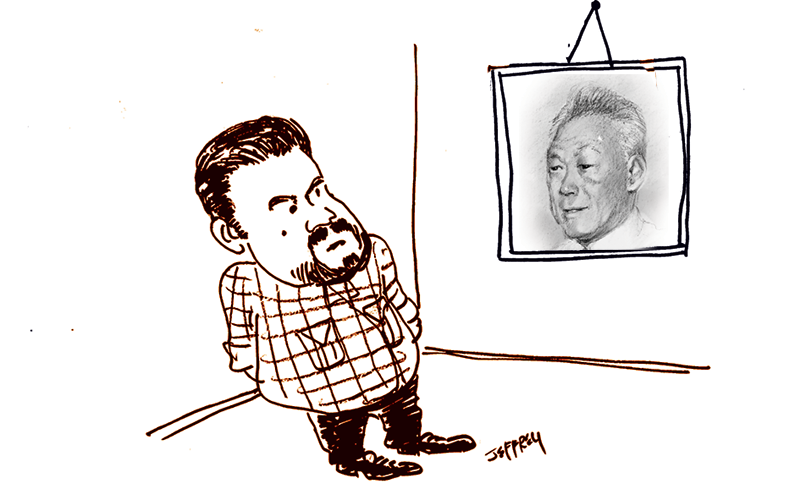
by Chula Goonasekera
Rev. Dato’ (Sir) Sumana Siri
We, the citizens of Sri Lanka, have already witnessed significant reforms in governance under AKD’s leadership. This personally led process must continue consistently, free of bias, and within the framework of the law to ensure sustainable governance by the State, not the individual. Such efforts will help minimise the waste of public funds and lay a strong foundation for the nation’s development in the long term. We often look to Lee Kuan Yew (LKY), Singapore’s founding father, as an example of transformative leadership. He united three diverse ethnic groups—Chinese, Malay, and Indian—under the principle of honesty. Today, Sri Lanka faces profound challenges from past political corruption, economic instability, and social divisions. LKY’s leadership serves as a reminder that integrity, accountability, and a commitment to the greater good can redefine a nation’s destiny, regardless of its size or resources, similar to Singapore.
When Singapore gained independence in 1965, it was a small, resource-scarce nation facing political unrest and ethnic divisions. Yet, within one generation, it became a global financial hub and a first-world country. LKY’s leadership was pivotal, centred on three core principles: meritocracy, integrity, and pragmatic governance. He prioritised national security, social cohesion, and economic growth. His efforts to foster ethnic harmony included implementing bilingual education policies and enforcing anti-discrimination laws. Similarly, AKD should consider enacting legislation to prevent racially motivated demands, i.e. anti-discrimination laws, to safeguard the government from evil, selfish minds trying to destabilise the government’s commitment to equality. Such legislation will stop this burden falling on the leadership case by case.
LKY’s policies, though sometimes harsh, were rooted in practicality and long-term thinking. The Internal Security Act ensured peace and stability during critical years. Likewise, his investments in education and infrastructure established a foundation for sustained growth. His focus on political stability, a robust legal system, and zero tolerance for corruption inspired investor confidence. Singapore’s Corrupt Practices Investigation Bureau (CPIB) was empowered to tackle corruption at all levels. Sri Lanka must adopt a similar mindset to revitalise the Bribery and Corruption Commission, moving away from populism and short-term fixes in favour of strategic, future-oriented policies.
AKD’s primary election theme was anti-corruption, reflecting a key aspect of LKY’s leadership. His unwavering stance against corruption defined LKY’s pragmatic governance. He held public officials to the highest accountability standards, ensuring that anyone guilty of corruption faced severe consequences, including dismissal, public exposure, and prosecution. By rooting out corruption, Singapore built domestic credibility and attracted global investment. We in Sri Lanka need such legislation at the earliest opportunity to deal with various kinds of corruption that are appearing again and involving many public officials.
In Sri Lanka, corruption has long undermined public trust in institutions and stifled economic growth. With overwhelming public support, AKD is well-positioned to deliver on his promise to combat corruption. However, this needs to be done early before the government gets entangled with controversy over its own ‘tiered’ standards. Through comprehensive legislative measures, Sri Lanka can rebuild its institutions, restore public confidence, and chart a course toward sustainable development.
LKY was considered “cruel” by some because he treated all races equally without favouring any. AKD shares a similar stance. One of the hallmarks of LKY’s leadership was his unwavering commitment to meritocracy. This created a culture of excellence where the best and brightest minds were responsible for leading the country. In Singapore, recruitment and promotions across all sectors were strictly based on merit—capabilities, skill sets, and abilities—not on connections, nepotism, racial considerations, or personal favouritism. Although challenging to implement, meritocracy can be implemented with the open advertisement of qualifications needed, a transparent appointment process, strict job plans with annual reviews linked to customer feedback, and personal development strategies that are considered a necessity to continue. This approach will foster a culture of excellence and innovation, like Singapore, ensuring that the most capable individuals propel the country forward.
Sri Lanka must break free from the grip of favouritism and focus on nurturing talent through equal opportunities for all citizens, regardless of ethnicity or social background. Early signs of this approach are visible under AKD’s leadership. LKY understood that for a nation to progress, its institutions must be led by those who are truly capable, irrespective of their background. By adopting meritocracy, Sri Lanka could break the cycle of favouritism, nepotism, and ethnic division that has often hindered its development. Establishing a system where opportunities are based on ability and performance could unlock the full potential of Sri Lanka’s people, fostering a culture of innovation, growth, and national unity.
After gaining independence in 1965, during Singapore’s formative years, LKY focused on eliminating corruption, gang activities, and communist threats to create a peaceful and secure nation. The Internal Security Act (ISA) granted his administration discretionary powers to arrest and detain individuals without trial, when necessary, to prevent actions deemed harmful to Singapore’s security, public order, or essential services.
The ISA allowed preventive detention, suppression of subversion, and countering of organised violence against persons and property. Sri Lanka urgently needs a similar act to ensure that politicians and public officials comply with legally binding measures. With its Parliament still in its formative stages, we hope Sri Lanka will soon establish a comparable Internal Security Act. By eliminating corruption at all levels, as LKY did, Sri Lanka can inspire public trust and attract international investors who view stability and a corruption-free environment as prerequisites for investment. This approach could transform Sri Lanka into a manufacturing, business, and financial hub for the Indian Ocean region.
Under LKY’s leadership—often described as strict—Singapore transformed from a third-world nation into a first-world country. Sri Lanka has the potential to achieve even more, given its abundant natural resources, strategic location, and educated population that can be developed into a skilled workforce. With its prime position in the Indian Ocean, Sri Lanka could become a regional economic powerhouse—provided it fosters a stable and investor-friendly environment. Like Singapore, Sri Lanka should adhere to a non-aligned foreign policy to emerge as a crucial node in global trade and finance, maintaining friendly ties with Eastern, Western, and Asian powers while leveraging its strategic location.
While some label LKY’s methods as “cruel,” his leadership was not about oppression but discipline and fairness. Whether these policies were “cruel” or benevolent is debatable, but their results speak for themselves. He treated all races equally, fostering harmony in a diverse society by ensuring everyone felt they had a stake in Singapore’s future. Moreover, LKY’s economic policies were marked by simplicity and foresight. Low personal income taxes, the absence of capital gains and inheritance taxes, and a business-friendly environment encouraged reinvestment and entrepreneurship. By positioning Singapore as a global trade and financial hub, LKY ensured its economic resilience. Sri Lanka, too, must prioritise national unity. Divisive politics and ethnic biases must be curtailed to build a shared vision of prosperity and peace, as AKD is striving to do.
LKY’s leadership was built on three core tenets relevant to Sri Lanka today: meritocracy, integrity, and pragmatism. Encouragingly, AKD appears to be moving in a similar direction. One of LKY’s greatest strengths was his pragmatic, long-term approach to governance. He maintained tight control over domestic finances, preventing the internationalisation of the Singapore dollar and limiting the operations of foreign banks. This created an environment that attracted international firms eager to establish themselves in Singapore. Sound financial policies, a corruption-free environment, and a focus on technological advancement helped Singapore become a hub for multinational companies like General Electric. State-owned enterprises like Temasek Holdings and Singapore Airlines were run with business efficiency, often outperforming private sector competitors. Sri Lanka could adopt a similar model to enhance the performance of its state-owned enterprises and boost economic growth.
Singapore adopted a two-pronged financial strategy: becoming an international financial hub while ensuring its financial sector supported key domestic industries like manufacturing and shipping. Additionally, integrating foreign and local talent fuelled decades of sustained economic growth. LKY’s focus on economic development, making Singapore an attractive investment destination, and drawing world-class manpower offer valuable lessons for Sri Lanka.
To replicate such success, Sri Lanka must invest in state-of-the-art infrastructure, establish excellent air and sea linkages, and maintain a low and transparent tax regime.
Clean and efficient bureaucracy, a strong regulatory and legal framework, and a neutral diplomatic policy—balancing relations with global powers like the US and China—are critical. Developing clean, green cities powered by sustainable energy will also be key to achieving remarkable economic success akin to Singapore’s.
Opinion
‘A degree is not a title’ – a response
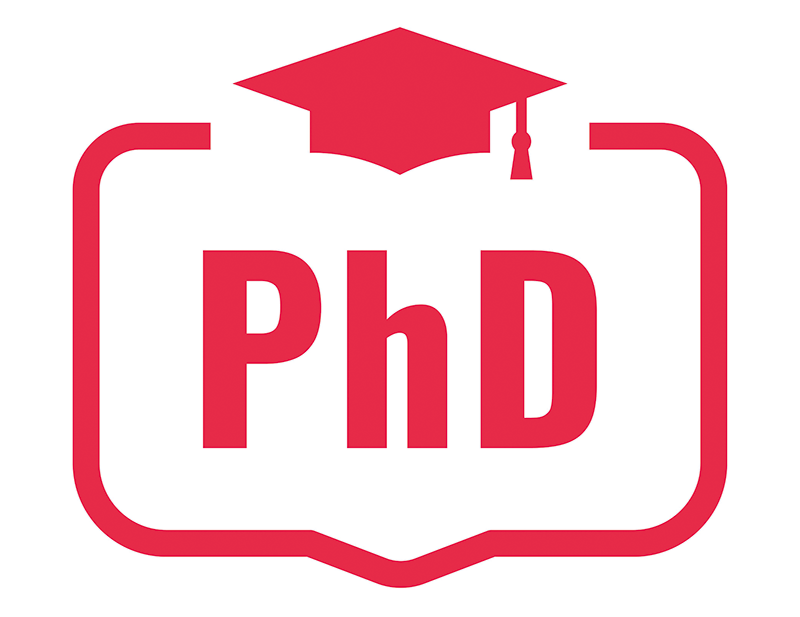
Reference the above-captioned letter in The Island of 16 Decembe, its writer, Philosophiae Doctor (PD), he is incorrect in his analysis of a Ph. D degree as a title. As Dr. Upul Wijewardena has said, only a Ph. D holder who can use the title ‘Dr’. However, the tradition is for those who have a medical degree to be called Dr. PD has written about the history of universities and quoted chapter and verse about the origin of degrees. We are now in the twenty first century and most universities have their own system of awarding Ph. Ds. For instance, British universities award Ph. Ds based on 100 per cent research whereas in American universities Ph. D degrees are awarded on the basis of 50 per cent research and 50 per cent course work. The research degree is given more weight at interviews.
PD has also said that a Masters’ Degree (MA) is essential to teach in a university. Many universities including universities in Sri Lanka offer Assistant Lecturer positions to those who have first degrees with classes. Some time ago, the Dean of the faculty of Arts at Otago university, New Zealand had only a B.A. He was appointed Professor because of his publications. In American universities lecturers with a Ph. D are addressed as Assistant Professor. Then a Professor after retirement has to get permission from his university to use the title as Professor (Emeritus). There is no such requirement for a person with a Ph. D to use the title Dr. Modern universities do not follow procedures that were adopted in old Europe mentioned by PD.
Dr. P. A. Samaraweera
Opinion
Electricity tariffs cannot be reduced due to CEB Mafia

Ceylon Electricity Board (CEB) has apparently become a law unto itself; it is increasing the salaries and other perks for senior staff at their will. There are 26,131 employees of CEB and its monthly salary bill is around Rs. 3,000 million, out of which 600 million goes for the salaries of engineers. A special grade engineer’s monthly take-home salary is reportedly about Rs. 919, 432 while an E1 grade engineer draws around Rs. 694,240 a month. These include a vehicle allowance of Rs. 250,000 and other benefits. The CEB has thought it is fit to regularly increase the salaries at the insistence of the powerful engineers’ union every three years without getting the approval of the cabinet or the public accounts committee of the finance ministry.
Out of the total number of employees at least 50% are political appointees recrutied by successive ministers of the power and energy ministry. Even the salary of a meter reader is Rs. 54,420 and it comes to around Rs. 125,000 a month. This is far higher and about 100% more than a graduate teacher. With such an excessive workforce earning exorbitant salaries no wonder that the CEB cannot reduce the electricity bills of consumers. There are 6.29 employees for every megawatt (MW) of power generated by CEB while the Malaysian Electricity Board generates six times more power and has only 1.15 employees for one MW of power generated!
PAYE tax should be borne by the employee and it is against the Inland Revenue Act for an institution to pay the PAYE tax due from its employees. It has been revealed before the COPE (the Committee on Public Enterprises) that Rs. 5 billion has been paid by the CEB as PAYE tax to its employees during the period 2010-2019 in contravention of a Cabinet decision on 13 December 2007. This, the CEB has been doing at the expense of consumers, who have to pay higher tariffs.
Verite Research has revealed that Sri Lankan households pay 2.5 to 3 times more for electricity than the average cost to their counterparts in South Asian countries. Our rates are much higher than in Bangladesh and Afghanistan. For instance, a consumer using 300 units of electricity has to pay an electricity bill of Rs. 21,860 while the average equivalent rate in South Asia is only Rs. 7,340. This shows how our professional engineers have managed the CEB power generation so inefficiently over the years.
The reason for this inefficiency is due to the neglect of renewable energies in Sri Lanka. The CEB engineers have always advocated for more and more coal-powered plants. They have deliberately blocked renewable energy projects for obvious reasons. The Supreme Court has found the CEB guilty of blocking a proposal by Vavuniya Solar Power Private limited for a solar energy plant and ordered it to pay Rs 01 million rupees as damages. This, too, would have been paid from CEB funds and those who took such corrupt decisions have got off scot-free. The technical officers of CEB allege that CEB management has purchased power from private power plants despite an increase in hydro power generation. In case hydropower is insufficient to meet the demand another idling turbine at Norochcholai could have been put into operation. There are serious allegations that CEB engineers are intimately connected to such private power plants and even own all or part of them. The new government should appoint an independent commission to investigate allegations against the CEB.
Concerned Consumer
-

 Opinion7 days ago
Opinion7 days agoDegree is not a title!
-
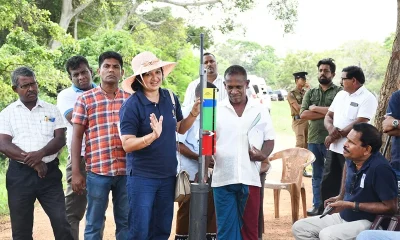
 News6 days ago
News6 days agoInnovative water management techniques revolutionising paddy cultivation in Lanka
-
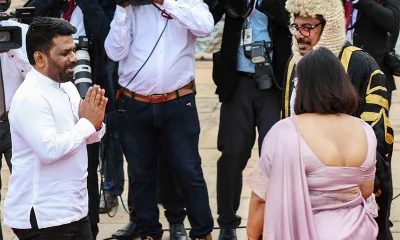
 Features5 days ago
Features5 days agoThe Degree Circus
-

 Editorial7 days ago
Editorial7 days ago‘Compass’ under the microscope
-
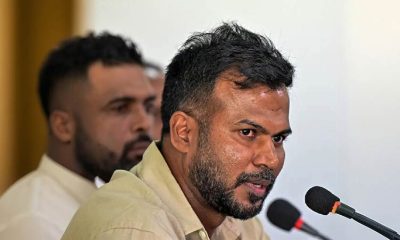
 Sports3 days ago
Sports3 days agoSri Lanka to mend fences with veterans
-
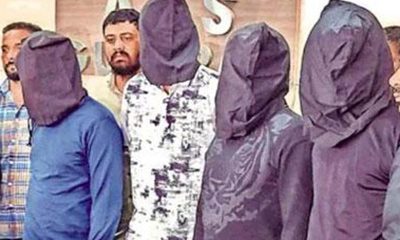
 News7 days ago
News7 days agoArrest of Lankans on terrorism charges in Gujarat: Muslim grouping renews campaign for their release
-

 Opinion5 days ago
Opinion5 days agoHas ‘Compass’ lost direction?
-

 Editorial6 days ago
Editorial6 days agoA supreme irony











